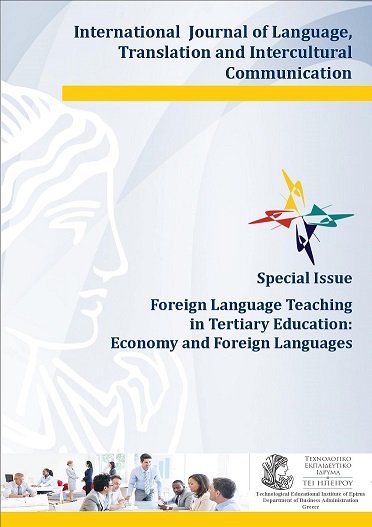Survival strategies for teachers and researchers of ESP in economically challenging times

Abstract
I outline some of the challenges for teachers and researchers of ESP in this period of prolonged economic crisis from the perspective of someone who has taught English for law students and political science students for many years, is editor of the journal ESP Across Cultures, and is Head of the Language Centre of Foggia University. I focus on three issues: 1) teaching LSP at university level in a context of contradictory pressures coming from ministerial insistence on internationalization of Italian universities in an increasingly globalized world while drastically reducing funding at all levels; 2) research in ESP, where I outline the vibrancy of ESP studies despite the economic hardships, but I surmise that this is partly the result of a shift towards providing practical language skills for future professionals in line with the marketization of tertiary education; 3) the emerging role of CLIL (Content and Language Integrated Learning), where in Italy it is now law to provide part of secondary school tuition of a non-language subject in a foreign language: I outline the ways in which ESP and CLIL can mutually complement each other. I conclude by arguing that the future looks bright for ESP studies despite the economic crisis.
Article Details
- How to Cite
-
WILLIAMS, C. (2016). Survival strategies for teachers and researchers of ESP in economically challenging times. International Journal of Language, Translation and Intercultural Communication, 4(1), 7–15. https://doi.org/10.12681/ijltic.10351
- Section
- Articles

This work is licensed under a Creative Commons Attribution-NonCommercial-ShareAlike 4.0 International License.
Copyright Notice
Authors who publish with this journal agree to the following terms:
- Authors retain copyright and grant the journal right of first publication with the work simultaneously licensed under a Creative Commons Attribution License that allows others to share the work with an acknowledgement of the work's authorship and initial publication in this journal.
- Authors are able to enter into separate, additional contractual arrangements for the non-exclusive distribution of the journal's published version of the work (e.g., post it to an institutional repository or publish it in a book), with an acknowledgement of its initial publication in this journal.
- Authors are permitted and encouraged to post their work online (e.g., in institutional repositories or on their website) prior to and during the submission process, as it can lead to productive exchanges, as well as earlier and greater citation of published work (See The Effect of Open Access).


